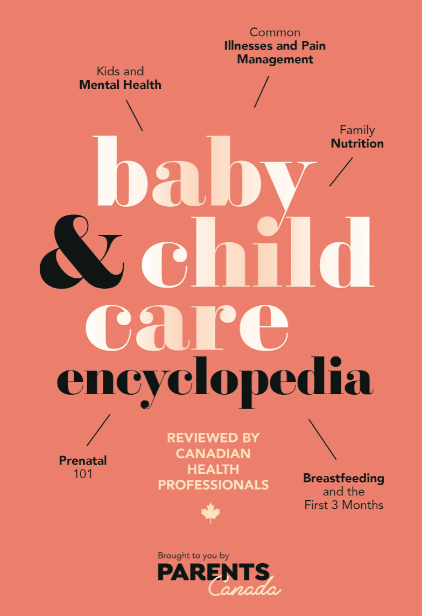Uncategorized
6 min Read
TEMPLATE – BCCE

October 9, 2020
Uncategorized
6 min Read

October 9, 2020

 From the pages of the Baby & Child Care Encyclopedia: Chapter 1, Prenatal 101
From the pages of the Baby & Child Care Encyclopedia: Chapter 1, Prenatal 101The moment you find out you’re expecting a baby, your whole world changes. It may come as a shock or feel like a dream come true (or both), and it’s always a big deal. You’re adding a whole new person to your family! It’s a thrilling time, and it all begins with two little lines on a test.
Pregnancy is an adventure, but it’s not without its challenges. You will experience a long list of physical and emotional changes, and it’s completely natural to have questions, concerns and even anxiety. Some days will be filled with excitement and joy while others may be a struggle. Fortunately, at the end of the day, it’s all worth it—we promise! Congratulations on your impending arrival. We’re here for you, to help you stay strong, healthy and happy throughout your pregnancy.
As soon as you’ve received a positive on an at-home test (or even if you just suspect that you’re pregnant), it’s best to reach out to your family doctor. If your pregnancy test is inconclusive, they will confirm your pregnancy with urine and/or blood tests and provide guidance for the months ahead. If you’re unsure of when you conceived, a dating ultrasound may be recommended. They’ll also be able to recommend an OB-GYN or midwife if you haven’t already self-referred. You may see your pregnancy caregiver right away or be asked to schedule an appointment closer to the end of your first trimester.
If you aren’t already taking prenatal vitamins, start now. This pregnancy-specific supplement contains a combination of vitamins and minerals designed to optimize maternal health and prevent neural tube defects. Folic acid is especially important in the early weeks of pregnancy, and the average woman gets far less than the daily recommended requirement through food alone. In addition to taking a prenatal vitamin, you can also increase your folic acid intake by including foods like chickpeas, lentils, cooked spinach, broccoli, cabbage, spring greens and sunflower seeds in your diet.
You may have heard that it’s best not to share pregnancy news with friends and family until after the first twelve weeks. While this is a fairly common practice, it’s not necessary and is entirely up to you and your partner as to when you will share the news.
The first trimester of pregnancy can pass by with very few symptoms or be a fairly challenging time. Every woman (and every pregnancy!) is different, but it’s common to experience any or all of the following symptoms:
Some of these symptoms can be alleviated with simple remedies, but if you require prescription or over-the-counter medication to relieve heartburn, nausea or other symptoms, your doctor will be able to advise which medications are safe during pregnancy. (While pregnant, do not
take any medication without consulting with your doctor or pharmacist.) Also, if you’re able to rest when tired, you should—your body is going through a major transformation behind the scenes.
In addition to these physical signs of pregnancy, you may feel like you’re on an emotional rollercoaster—you’ll feel exhilaration, joy, anxiety and stress (sometimes, several of these in a single hour or day). Many expectant mothers find themselves worrying about the health of their baby, childbirth, finances or raising a child. This is totally normal, so be kind to yourself. However, if you’re experiencing intense anxiety, depression or mood swings, we recommend connecting with your care team for support.
Feeling a little green? The term “morning sickness” is a misnomer because in reality, nausea and vomiting in pregnancy can be an issue at any point throughout the day. If you’re experiencing this common ailment, there are ways to minimize your symptoms.
Pro tip: Keep snacks in your purse!
If you are vomiting frequently and find that you don’t pee very often or your pee is very dark yellow and you cannot drink enough to correct this, please reach out to your doctor for support. You may be suffering from hyperemesis gravidarum (HG), a condition that affects approximately 1% of pregnant women and is characterized by severe nausea, vomiting and weight loss. Severe cases of HG can result in dehydration, hospitalization and other maternal complications, so it’s important to seek medical attention. Fortunately, this condition is not an indication of issues with the baby.

The Prenatal chapter of the Baby & Child Care Encyclopedia has been made possible by WillowWood School. willowwood.ca
